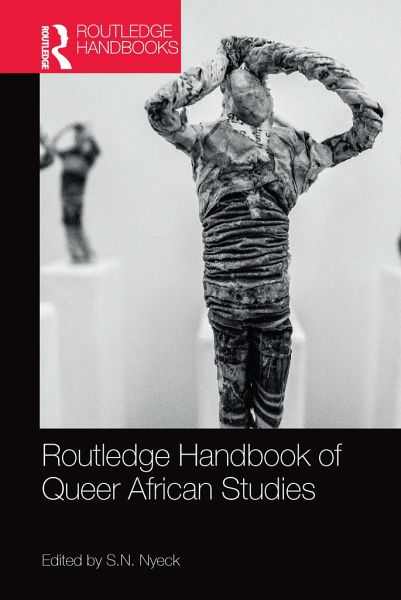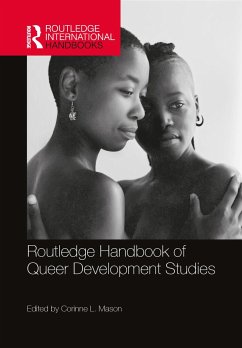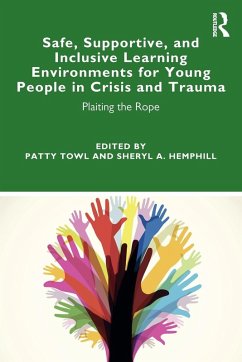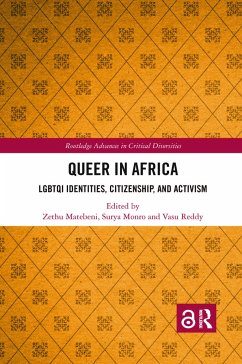
Routledge Handbook of Queer African Studies
Versandkostenfrei!
Versandfertig in 6-10 Tagen
49,99 €
inkl. MwSt.
Weitere Ausgaben:

PAYBACK Punkte
25 °P sammeln!
This handbook offers diverse perspectives on queer Africa, incorporating scholarly contributions on themes that reflect and inflect the trajectories of queer contributions to African studies within and outside academia.The Routledge Handbook of Queer African Studies incorporates a range of unique perspectives, reflecting ongoing struggles between regimes of inclusion and those of transformation premised upon different relational and reflexive engagements between queer embodiment and Africa's subjectivities. All sections of this handbook blend contributions from public intellectuals and practit...
This handbook offers diverse perspectives on queer Africa, incorporating scholarly contributions on themes that reflect and inflect the trajectories of queer contributions to African studies within and outside academia.
The Routledge Handbook of Queer African Studies incorporates a range of unique perspectives, reflecting ongoing struggles between regimes of inclusion and those of transformation premised upon different relational and reflexive engagements between queer embodiment and Africa's subjectivities. All sections of this handbook blend contributions from public intellectuals and practitioners with academic reflections on topics not limited to neoliberalism, social care, morality and ethics, social education, and technology, through the lens of queer African studies. The book renders visible the ongoing transformations and resistance within African societies as well as the inventiveness of queer presence in negotiating belonging.
This handbook will be of interest to students and scholars of gender and sexuality in Africa, queer studies, and African culture and society.
The Routledge Handbook of Queer African Studies incorporates a range of unique perspectives, reflecting ongoing struggles between regimes of inclusion and those of transformation premised upon different relational and reflexive engagements between queer embodiment and Africa's subjectivities. All sections of this handbook blend contributions from public intellectuals and practitioners with academic reflections on topics not limited to neoliberalism, social care, morality and ethics, social education, and technology, through the lens of queer African studies. The book renders visible the ongoing transformations and resistance within African societies as well as the inventiveness of queer presence in negotiating belonging.
This handbook will be of interest to students and scholars of gender and sexuality in Africa, queer studies, and African culture and society.














